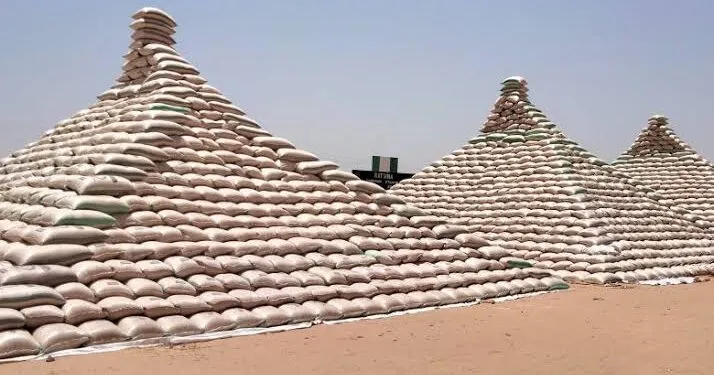In a bid to tackle the rising cost of food and mitigate food insecurity, the Nigerian government has initiated the sale of 30,000 metric tonnes of milled rice, exclusively available to public servants with valid National Identification Numbers (NIN). The Federal Ministry of Agriculture and Food Security, led by Minister Abubakar Kyari, officially launched the initiative on September 5, 2024.
Speaking at the event, Kyari, who was represented by President Bola Tinubu, highlighted that the measure aims to curb food racketeering and ensure equitable access to the commodity. The rice, priced at ₦40,000 for a 50kg bag, is part of the government’s broader strategy to reduce the soaring cost of food in Nigerian markets.
“This food intervention is both timely and necessary, given the current economic challenges we face as citizens of this great nation,” Kyari stated. “It reflects one of the many efforts of the present administration to cushion the effect of high food prices, with the sale of 30,000 metric tonnes of rice marking a significant step in this direction.”
The federal government’s initiative is designed to promote fairness by implementing a strict “one man to one bag or one woman to one bag” policy, ensuring that each eligible buyer can only purchase a single 50kg bag of rice. This strategy is intended to prevent hoarding and guarantee that the rice reaches as many Nigerians as possible.
Kyari emphasized that the sale is aimed at alleviating the food crisis brought about by a combination of global and local factors. He cited the COVID-19 pandemic, the ongoing Russia-Ukraine war, and the impacts of climate change as major contributors to rising food costs worldwide. These challenges have heightened concerns about food security and reduced the standard of living in many countries, including Nigeria.
“The present food challenges are not unique to Nigeria,” Kyari explained. “However, the federal government is fully aware of the potential risks associated with the sale of rice at a critical time like this. To ensure transparency and prevent fraud, we have established a multi-disciplinary team and implemented verification processes for prospective buyers. Only individuals with registered NINs and verified phone numbers will be able to purchase the rice.”
This verification process is intended to prevent unscrupulous individuals from exploiting the system, thus ensuring that the rice reaches its intended beneficiaries—ordinary Nigerians struggling with high food prices.
Kyari also highlighted the government’s broader efforts to address the country’s food insecurity, including the recent release of 42,000 metric tonnes of assorted food commodities to vulnerable citizens. These initiatives, he said, are part of President Tinubu’s larger strategy to enhance food security and stabilize the nation’s economy.
In addition to reducing the price of rice, Kyari expressed optimism that the sale of such a large quantity of the staple would have a ripple effect on the prices of other food commodities. “We expect the injection of 30,000 metric tonnes of rice into the market to crash not only the price of rice but also the prices of other close food substitutes and alternatives,” he said.
The Minister urged Nigerians to remain patient and steadfast, assuring them that the government’s ongoing efforts to address food security challenges will soon yield positive results. “Let us work together to ensure that the present administration’s dream of upholding the fundamental right to food for all Nigerians is realized.”
With the flag-off of the 30,000 metric tonnes of milled rice, the government has reaffirmed its commitment to tackling food insecurity in Nigeria, promoting equitable access to essential food commodities, and providing much-needed relief to its citizens during these trying times.




